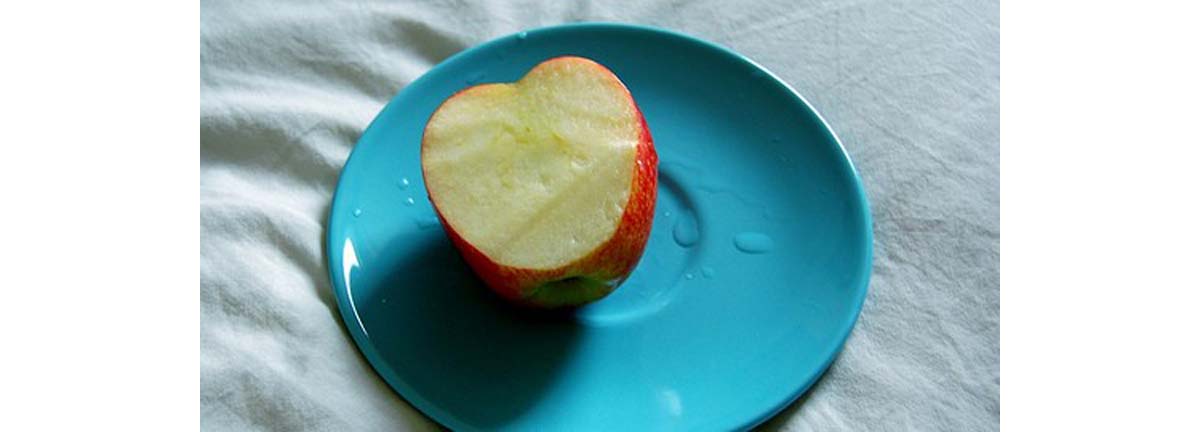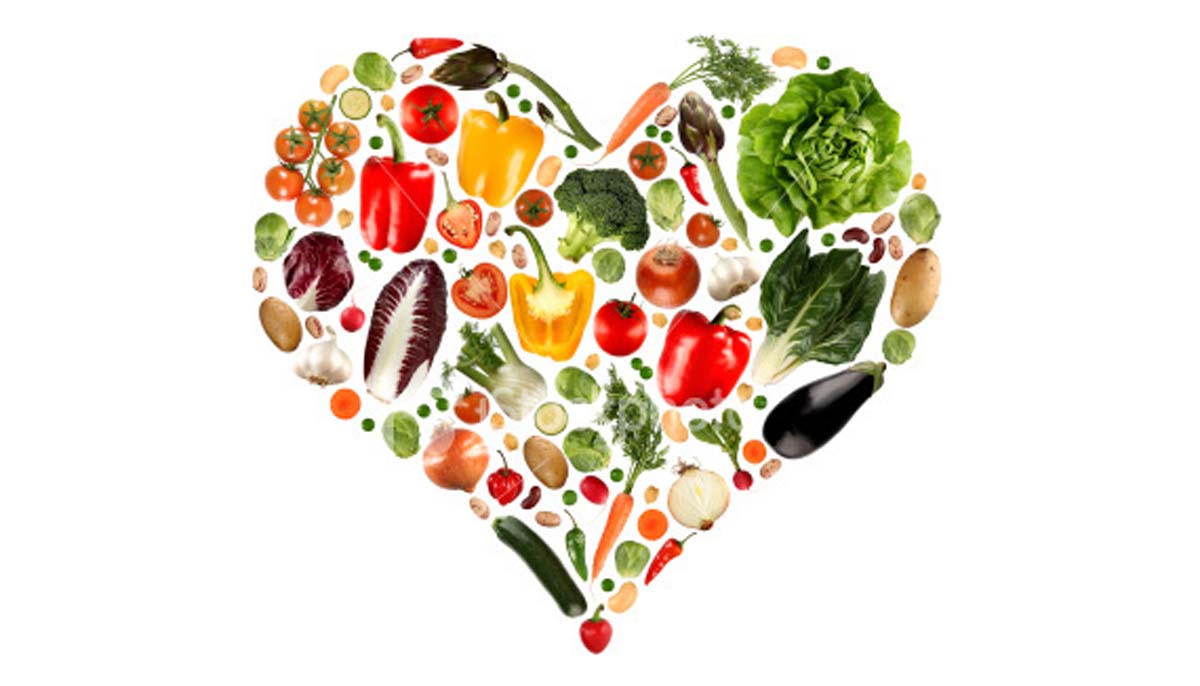What you’re eating can be detrimental to your heart health — that much is clear to everyone.
The choices we make with regard to food and overall diet can lead to heart problems including circulation problems that can contribute to the risk of heart attack and stroke. Whether you’ve been eating an unhealthy diet for years or recently decided to make some healthier choices, educating yourself on which foods to stock up on and which foods to avoid will put you on your way to eating heart smart.

About Heart Disease
Heart disease is a term that encompasses many conditions and diseases that can affect your heart. Under the umbrella of heart disease can be many conditions including cardiovascular disease, congenital defects, infections and arrhythmias. The most prominent type of heart disease, cardiovascular disease, refers to plaque build up in the arteries or a narrowing of the blood vessels that can lead to heart attack or stroke. Cardiovascular disease can be controlled or prevented in part by healthy eating habits and lifestyle choices.
Symptoms of Heart Disease
The symptoms of heart disease vary according to the type of heart disease you are suffering from. In persons with cardiovascular disease, symptoms may not be present until a heart attack, stroke or angina is imminent. However, people who pay regular visits to their physicians can stay ahead of the curve because these visits can be used to monitor for cardiovascular disease.
Symptoms of cardiovascular disease that should encourage anyone to make a doctor's appointment right away include shortness of breath, chest pain, numbness and tingling or cold sensation in the extremities.
Causes of Heart Disease
Depending upon the type of heart disease a person has, the causes will vary. However, cardiovascular disease or fatty-plaque build-up in the arteries is typically linked to being overweight, smoking and an unhealthy diet. In addition, other medical conditions can lead to heart disease. The diseases that lead to an increased risk of cardiovascular disease include diabetes and high blood pressure.
Risk Factors for Heart Disease
There are many factors that can increase your risk for developing heart disease. Some of the most important risk factors include getting older and being male. Other risk factors associated with heart disease include high blood pressure, high cholesterol levels, a family history of heart disease, a lack of exercise, unhealthy diet, extreme levels of stress, smoking and obesity.
Many of these risk factors can be reduced with changes made to a person's diet, exercise and lifestyle choices. You cannot control your family history, for example, but you can stop smoking and start exercising.
Diagnostic Tests for Heart Disease
No matter what type of heart disease you are suspected of having, your doctor will likely begin with a physical examination and medical history before performing any other tests. Your doctor will then order diagnostic tests depending upon what type of heart disease your symptoms point to. Diagnostic tests may include: blood tests, chest x-ray, electrocardiogram, echocardiogram, CT scan, MRI, cardiac catheterization or biopsy.
Treatment Options for Heart Disease
Treatment options for heart disease will vary depending upon the type of heart disease you have been diagnosed with. Treatment options may include medications, surgical procedures or open-heart surgery. However, all types of heart disease, including cardiovascular disease, will require you to make lifestyle changes such as quitting smoking, exercising and eating a healthier diet. These lifestyle changes can sometimes be enough on their own, but they always help.
Prevention
Congenital heart defects cannot be prevented, however, many other types of heart disease can be prevented.
In order to prevent heart disease it is important to maintain a healthy weight and control any underlying medical conditions such as high blood pressure, diabetes and high cholesterol.
Other prevention measures include: quitting smoking, eating a healthy balanced diet low in saturated fats and sodium, managing stress, exercising at least 30 minutes per day and practicing good hygiene.
Improve Heart Health With Diet
Watch Portion Size
Being aware of how much you eat can be just as effective as being aware of which foods you choose. Many of us pile up our plates or eat until we feel full, doing this only adds to an excess of calorie and fat intake. It is important to control your portion size; no matter what foods you are eating. Typical portion size is considered to be the serving size of the food you are eating. A portion size of meat or chicken is best kept between 2 and 3 ounces while a ½ cup of pasta is considered to be the desired portion size.
Eat More Produce

Read More: Are You At Risk Of Having A Heart Attack?
Choose Whole Grains
Choosing whole grains is an effective way to obtain plenty of fiber and other elements that can help to regulate blood pressure. To add whole grains to your diet, simply look for whole grain products rather than processed grain foods. Additionally, you may choose to add flaxseed to your meals, which is ground and added to cereal or yogurt. Flaxseed is high in fiber and omega-3 fatty acids, which can help to lower cholesterol.
Replace Unhealthy Fats With Healthy Fats
In order to lower your cholesterol and reduce your risk of heart disease, it is important to limit your intake of trans fats and saturated fats. To reduce your fat intake, trim down all meats and limit your use of solid fats that are often added to cooking such as margarine, butter or shortening. Instead, choose monounsaturated fats such as canola or olive oil. When snacking, choose polyunsaturated fats such as nuts or seeds.
Stick With Lean Protein
The best sources of protein are lean meats and poultry, fish, egg whites and low-fat dairy choices. When preparing chicken, be sure the skin has been removed and it is not fried. Another heart healthy protein choice is beans or legumes, which are low in fat and are cholesterol free.
Cut Back On Sodium
Eating a diet that is high in sodium can raise your blood pressure and lead to cardiovascular disease. Cut back on the amount of salt that you consume by eating out less and refraining from adding salt to your meals. Many canned and prepared foods are high in sodium, choosing fresh foods and ingredients can greatly reduce your salt intake.
Have Some Red Wine
Drinking red wine in moderation can be good for your heart. The antioxidants and a component called resveratrol that is found in red wine can help to increase the levels of “good” cholesterol in your body and safeguard your arteries against plaque build-up. These components are suspected to reduce the instance of inflammation and clotting in the blood vessels. This is believed to be beneficial to the heart; however, more research is needed to be certain.
Eat Foods High In Vitamin E
Foods that are rich in vitamin E can help to lower blood pressure and protect blood vessels. Foods high in vitamin E include whole grains, greens, nuts and seeds and avocados. Eating an abundance of vitamin E-rich foods can work like blood pressure medication, so it is important to consult your doctor if you are taking this type of medicine.
Add More Fish To Your Diet
Fish is high in omega-3 fatty acids, which is beneficial in reducing cholesterol. The best fish sources of omega-3 fatty acids include salmon, anchovies, mackerel and herring. Eating a diet that is rich in omega-3 fatty acids can reduce your risk of heart disease. Be cautious, however, not to eat too much shellfish, which is high in cholesterol.
Plan Out Your Meals
Knowing how to eat heart healthy is essential to planning out your meals. Be sure to choose a diet rich with fruits, vegetables and whole grains. Choose lean meats and fish for protein as well as beans and legumes. For snacks, choose fresh fruits and veggies or nuts and seeds.
Indulge Occasionally
There is nothing wrong with indulging now and then. Having a sweet treat or a few chips is not likely to ruin your diet. What’s important is to find a balance and eat heart healthy more often than not. Indulging once in a while may be the thing that helps you stay on track, like a reward system.
Heart disease is a potentially serious condition that can lead to death. Prevention of heart disease begins with a healthy balance of diet and exercise as well as maintaining a healthy weight and controlling any underlying medical conditions. Begin eating a heart healthy diet today, it is never too late for change.
- Photo courtesy of 37561343@N00 on Flickr: www.flickr.com/photos/37561343@N00/5495559834
- Photo courtesy of viagem_secreta on Flickr: www.flickr.com/photos/viagem_secreta/2681535738
- www.mayoclinic.com/health/heart-disease/DS01120
- www.mayoclinic.com/health/heart-healthy-diet/NU00196
- www.telegraph.co.uk/health/5099589/How-to-eat-better-to-protect-your-heart.html
- womenshealth.gov/publications/our-publications/fact-sheet/heart-healthy-eating.cfm
- www.mayoclinic.com/health/red-wine/HB00089

